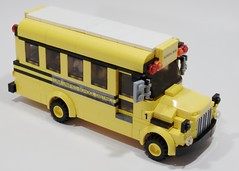Hi All,
So here is a blog I have set up about Inquiry Learning. Now I am by no means an expert. I have picked up most of what I know from watching other teachers and experimenting with my students.
As you all know, every child, class and situation. What works for me may be irrelevant for you, however I have found the following key points have helped me no matter who I am planning for.
1. Never assume anything! Especially what the children know or understand.
I once tried to facilitate a brainstorm on why Good Oral Language Skills are important with a Year Five and Six class. After getting nowhere for quite a while, I realised that the children didn’t know what the term Oral Language meant. Once I had explained this term the brainstorm was very successful, all of their knowledge had been blocked by my use of an unfamiliar term.
2. In order to be curious about something, you need to already know something about it.
I always begin any class inquiry topic with an immersion rotation, or pitch a mini class inquiry to hook the children’s interest. Lead the children to some key learning that will scaffold their understanding and own personal inquiry.
3. Good questions are essential, and good questioning must be taught.
They need to be taught about, open ended, closed, leading, and higher order questioning. Use Bloom’s, DeBono’s and Thinker’s Keys to scaffold them.
4. And finally, do it all over again and again and again.
Again it is the assumption thing. Don’t assume because they have done it before, whether it was last term or last year that they will remember how to conduct an inquiry. You will need to teach, use and refer to the basic skills of inquiry over and over again. I often use guided reading as means of teaching these skills.
Anyway, here are some resources that I have begged and borrowed in PDF.
inquiry-model – This was given to me by our team leader and could easily be turned into a check list.
issues-inquiry-learning1 – A student workbook used in a Yr5 & 6 class
Keywords, Skimming and Scanning Skills cards
scan-card1, key-words-card1, skimming-card1
Tools for good questioning
venn, bloom-rubric, 6hatsplanning, thinkers_keys_all-1
Please feel free to add anything else you think may be useful.
Marama
![]() Everyone is picking on me!!!! Today I admitted to being a fan and now an active Twitterer. People keep asking me if I am following Ashton Kuttcherr and Ellen Degenerous … obviously not!!! I can’t even spell their names let alone find them!
Everyone is picking on me!!!! Today I admitted to being a fan and now an active Twitterer. People keep asking me if I am following Ashton Kuttcherr and Ellen Degenerous … obviously not!!! I can’t even spell their names let alone find them! I first encountered Twitter last May while I was on the Apple Bus Tour . When visiting Point England School the eLearning Facilitator, Dorothy Burt, mentioned that she Twittered. I of course, being thoroughly amped with the tour, joined straight away … now what? I didn’t know who, what or where to follow. I couldn’t even understand half the text language being used???
I first encountered Twitter last May while I was on the Apple Bus Tour . When visiting Point England School the eLearning Facilitator, Dorothy Burt, mentioned that she Twittered. I of course, being thoroughly amped with the tour, joined straight away … now what? I didn’t know who, what or where to follow. I couldn’t even understand half the text language being used???

 Please tell me … how do I keep up without being biologically wired to my MacBook??!!
Please tell me … how do I keep up without being biologically wired to my MacBook??!!
















